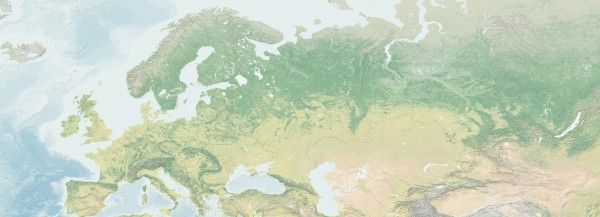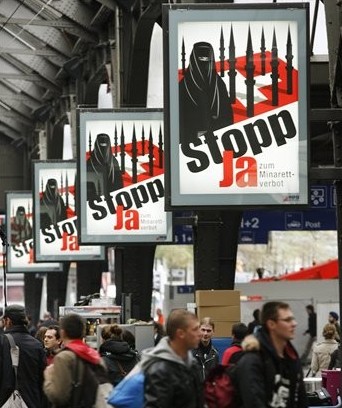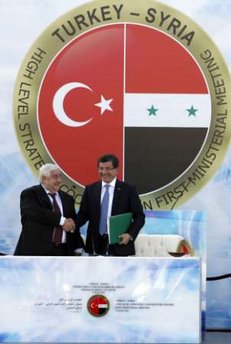A reminder of the Bush administration's sense of drift before 9/11:22 SIR MARTIN GILBERT: I have just two more questions before
23 9/11. The first is, during that period again
24 focusing on Iraq were
the members of the
25 administration you were talking to at that time
16
1 beginning to contemplate removing Saddam by force,
2 perhaps even within a fixed period?
3 SIR CHRISTOPHER MEYER: I didn't see that emerging from the
4 interagency process at all. Every now and again, one
5 would say to Condoleeza Rice or to Colin Powell, "How is
6 the Iraq review going?", and they would just say, "Well,
7 we are still talking about it".
8 It wasn't going anywhere, to be honest with you,
9 and, in fact, it looked at the time, technically after
10 the summer break in early September it
kind of looked
11 like the Bush administration as a whole wasn't going
12 anywhere. It lost a sense of direction very rapidly and
13 I remember sending a telegram on 10 September, literally
14 went out on the eve of 9/11. I think they were about to
15 have a visit by John Prescott and this was a form of
16 briefing for him saying,
"This is an administration
17 which appears to be running out of steam", was losing
18 a sense of direction 19
THE CHAIRMAN: Can I interrupt just to ask, did you mean
20 generally across the whole range of policy?
21 SIR CHRISTOPHER MEYER: I do. I'm sort of compressing
22 things here. What had happened domestically was, with
23 immense political effort, Bush I
mean Bush put all
24 his political capital, most of his political capital in
25 those first few months in getting a big taxcut
through
17
1 congress for getting benefits and prescription medicine
2 for senior citizens.
3 He got them but they were pyrrhic victories, they
4 exhausted him and he lost his majority in the Senate as
5 a result. Come September 2001, before 9/11, everybody
6 was saying that effort has killed him. Rumsfeld, there
7 was a huge bear market in Rumsfelds, because he didn't
8 seem to be reorganising the Department of Defense as he
9 promised to do. He got lost in detail, so the story
10 went. There was a big bear market in Colin Powells
11 because his narrowing and deepening and what he was
12 doing in the Middle East was going nowhere, and there
13 was a cataclysmic market in Paul O'Neills, who was the
14 Treasury Secretary who was soon to be dismissed.
15 So on the very eve of the great atrocity, it looked
16 like an administration that had got into trouble very
17 quickly.
18 THE CHAIRMAN: Just to round off, Iraq really not figuring
19 very much, if at all?
20 SIR CHRISTOPHER MEYER: Iraq was not it
was like
21 a grumbling appendix, I think is the way I would
22 describe it.....
22 SIR MARTIN GILBERT: I have just two more questions before
23 9/11. The first is, during that period again
24 focusing on Iraq were
the members of the
25 administration you were talking to at that time
16
1 beginning to contemplate removing Saddam by force,
2 perhaps even within a fixed period?
3 SIR CHRISTOPHER MEYER: I didn't see that emerging from the
4 interagency process at all. Every now and again, one
5 would say to Condoleeza Rice or to Colin Powell, "How is
6 the Iraq review going?", and they would just say, "Well,
7 we are still talking about it".
8 It wasn't going anywhere, to be honest with you,
9 and, in fact, it looked at the time, technically after
10 the summer break in early September it
kind of looked
11 like the Bush administration as a whole wasn't going
12 anywhere. It lost a sense of direction very rapidly and
13 I remember sending a telegram on 10 September, literally
14 went out on the eve of 9/11. I think they were about to
15 have a visit by John Prescott and this was a form of
16 briefing for him saying,
"This is an administration
17 which appears to be running out of steam", was losing
18 a sense of direction 19
THE CHAIRMAN: Can I interrupt just to ask, did you mean
20 generally across the whole range of policy?
21 SIR CHRISTOPHER MEYER: I do. I'm sort of compressing
22 things here. What had happened domestically was, with
23 immense political effort, Bush I
mean Bush put all
24 his political capital, most of his political capital in
25 those first few months in getting a big taxcut
through
17
1 congress for getting benefits and prescription medicine
2 for senior citizens.
3 He got them but they were pyrrhic victories, they
4 exhausted him and he lost his majority in the Senate as
5 a result. Come September 2001, before 9/11, everybody
6 was saying that effort has killed him. Rumsfeld, there
7 was a huge bear market in Rumsfelds, because he didn't
8 seem to be reorganising the Department of Defense as he
9 promised to do. He got lost in detail, so the story
10 went. There was a big bear market in Colin Powells
11 because his narrowing and deepening and what he was
12 doing in the Middle East was going nowhere, and there
13 was a cataclysmic market in Paul O'Neills, who was the
14 Treasury Secretary who was soon to be dismissed.
15 So on the very eve of the great atrocity, it looked
16 like an administration that had got into trouble very
17 quickly.
18 THE CHAIRMAN: Just to round off, Iraq really not figuring
19 very much, if at all?
20 SIR CHRISTOPHER MEYER: Iraq was not it
was like
21 a grumbling appendix, I think is the way I would
22 describe it.....
2 SIR CHRISTOPHER MEYER: It took a while for policy to
3 converge sorry,
if we are talking about Americans,
4 the President accepting, for realpolitik reasons, it
5 would be better to go through the United Nations than
6 not, which was a repudiation of where his VicePresident
7 stood.
8 It took a while to get there, probably until August
9 of that year. I said in my briefing telegram to
10 Tony Blair, before Crawford, a copy of which, again,
11 I couldn't get hold of in the archive and
by that
12 time there had been a couple of months, maybe more,
13 maybe three months, in which contingency discussion of,
14 "If it came to a war in Iraq, how would you do it?" It
15 was all very it
was all very embryonic.
16 Of course, while regime change was the formal policy
17 of the United States of America, it didn't necessarily
18 mean an armed invasion, at that time, of Iraq and it may
19 sound like a difference without a distinction or
20 a distinction without a difference, but it wasn't, not
21 at that time, and so I said I
think as I remember
22 I said to Tony Blair, "There are three things you really
23 need to focus on when you get to Crawford. One is how
24 to garner international support for a policy of regime
25 change, if that is what it turns out to be. If it
27
1 involves removing Saddam Hussein, how do you do it and
2 when do you do it?" And the last thing I said, which
3 became a kind of theme of virtually all the reporting
4 I sent back to London in that year was, "Above all" 5
I think I used the phrase "above all "
get them to
6 focus on the aftermath, because, if it comes to war and
7 Saddam Hussein is removed, and then ...?"
8 The other thing at that time, Sir Martin, which
9 people tend to forget is actually what was blazing hot
10 at the time and a far more immediate problem and
it
11 wasn't Iraq, it was the Middle East, because the
12 Intifada had blown up, hideous things were going on in
13 the West Bank, the Israeli army were in the West Bank
14 and we had prevailed on the Americans, as one example of
15 British influence working that year, to put out a really
16 tough statement before Tony Blair arrived in Crawford
17 telling the Israelis in summary that they needed to
18 withdraw from the West Bank towns and withdraw soon.
19 Now, let me be quite frank about this. Crawford was
20 a meeting at the President's ranch. I took no part in
21 any of the discussions, and there was a large chunk of
22 that time when no adviser was there, I think I
don't
23 know whether David Manning has been before you yet, but
24 when he comes before you, he will tell you, I think,
25 that he went there with Jonathan Powell for a discussion
28
1 of Arab/Israel and the Intifada. I think it was at that
2 meeting that there was a kind of joint decision between
3 Bush and Blair that Colin Powell should go to the region
4 and get it sorted.
5 I believe that, after that, the two men were alone
6 in the ranch until dinner on Saturday night where all
7 the advisers, including myself, turned up.
8 So I'm not entirely clear to this day I
know what
9 the Cabinet Office says were the results of the meeting,
10 but, to this day, I'm not entirely clear what degree of
11 convergence was, if you like, signed in blood, at the
12 Crawford ranch....
23 SIR CHRISTOPHER MEYER: When you look at the conditions now,
24 the socalled
conditions, we failed miserably on one,
25 which was trying to wind down the Arab/Israel dispute,
64
1 where, almost, things went into reverse rather than
2 going forward. On 3
SIR RODERIC LYNE: Just on that 4
SIR CHRISTOPHER MEYER: Do you want me to take each
5 condition one by one?
6 SIR RODERIC LYNE: Yes, let's take that one first. Didn't
7 the Americans in the end agree to publish the route map?
8 SIR CHRISTOPHER MEYER: Yes, but it led to b*****r all at the
9 time, let's be frank about it.
10 The high point of British influence on the
11 Arab/Israel dispute was the American statement of
12 4 April in which at a time when the Israeli defence
13 force was in West Bank towns creating some damage and
14 casualties, the Americans called for Israel's early
15 withdrawal from the West Bank towns. That made life
16 infinitely easier for Tony Blair when he came to
17 Crawford and had to do a joint press conference with
18 President Bush, because, if nothing had happened on
19 that, I think it could have revealed a rather large
20 split between Blair and Bush.
21 I say that was a high point of British influence,
22 because, no sooner had that statement come out demanding
23 the early withdrawal of the Israeli forces from the
24 West Bank, than a major political operation was launched
25 in Washington the following week to reverse the nature
65
1 of that call.
2 Colin Powell had been sent to the region, as I said
3 before, and when he came back, he was strongly of the
4 view that he had been consistently undermined by his
5 enemies, while he was away, in the Administration, in
6 the US Congress and by someone who is now the Israeli
7 Prime Minister, Benjamin Netanyahu, coming to Washington
8 and effectively working against him.
9 SIR RODERIC LYNE: So we got some progress on the
10 Middle East, but not, in your opinion, nearly enough 11
SIR CHRISTOPHER MEYER: No, sorry, let me just finish this
12 point.
13 The definitive American statement was then one made
14 in June which rowed back a long way from what they had
15 said on 4 April, and effectively said in a practical
16 sense that, "We will leave the Middle East on a care and
17 maintenance basis and, by the way, we are not going to
18 do anything until the Palestinians democratise
19 themselves", and what that means is getting rid of
20 Yasser Arafat, which he didn't do until he died.
http://www.iraqinquiry.org.uk/transcripts/writtenevidence-bydate.aspx

 In the latest outbreak of European xenophobia, the minaret has become a missile in a campaign to ban their construction — that is, the construction of minarets, not missiles.
In the latest outbreak of European xenophobia, the minaret has become a missile in a campaign to ban their construction — that is, the construction of minarets, not missiles.

 The past several days have witnessed not one but two momentous, even stunning, developments in Turkish foreign policy that are reverberating through the region. Both are the work of Ahmet Davutoğlu, a former university professor who became Turkish foreign minister last year. Before that, Davutoğlu (shown on far right with his Syrian counterpart Walid Muallem) served for several years as the Turkish Prime Minister Recep Tayyip Erdoğan’s chief foreign policy advisor. In a manner perhaps befitting a university professor, Davutoğlu has aspired to give Turkish foreign policy a comprehensive and consistent conceptual basis. He laid out his vision in his book Strategic Depth: Turkey’s International Position (Stratejik Derinlik: Türkiye’nin Uluslararası Konumu). According to this vision, whereas in the past the Turkish Republic followed a policy of quasi-isolation and self-imposed quarantine from its neighbors, today it should instead seek to take advantage of the cultural and historical links it shares with other countries in its region. As foreign minister, Davutoğlu has been working tirelessly to put his stamp on Turkish foreign policy....
The past several days have witnessed not one but two momentous, even stunning, developments in Turkish foreign policy that are reverberating through the region. Both are the work of Ahmet Davutoğlu, a former university professor who became Turkish foreign minister last year. Before that, Davutoğlu (shown on far right with his Syrian counterpart Walid Muallem) served for several years as the Turkish Prime Minister Recep Tayyip Erdoğan’s chief foreign policy advisor. In a manner perhaps befitting a university professor, Davutoğlu has aspired to give Turkish foreign policy a comprehensive and consistent conceptual basis. He laid out his vision in his book Strategic Depth: Turkey’s International Position (Stratejik Derinlik: Türkiye’nin Uluslararası Konumu). According to this vision, whereas in the past the Turkish Republic followed a policy of quasi-isolation and self-imposed quarantine from its neighbors, today it should instead seek to take advantage of the cultural and historical links it shares with other countries in its region. As foreign minister, Davutoğlu has been working tirelessly to put his stamp on Turkish foreign policy....